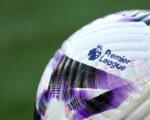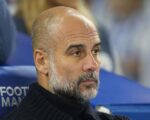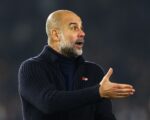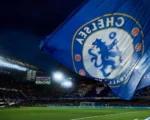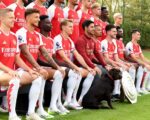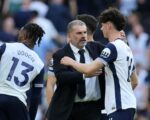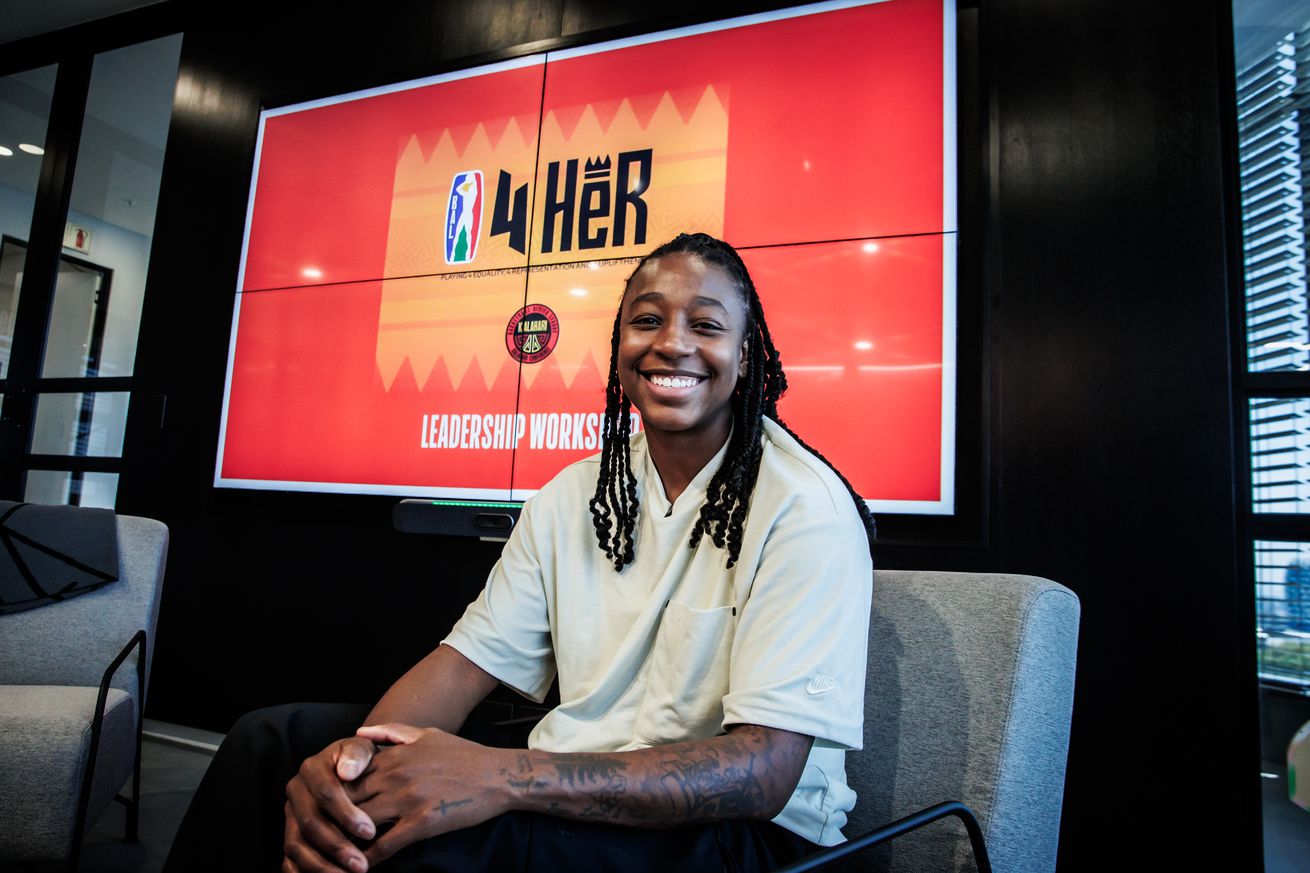
We got a chance to interview WNBA All-Star and Olympic gold medalist Jewell Loyd during her trip to the Republic of South Africa as part of the BAL4Her initiative.
Earlier this month, the Seattle Storm’s Jewell Loyd was in the Republic of South Africa to play and talk hoops with young African women as part of BAL4Her, the league’s platform for advancing gender equity in the African sports ecosystem and celebrating women in the sports industry who serve as role models to young women across the continent. During a short break between her obligations, Loyd found the time to answer a couple of our questions.
“ …”
Echoing the timeless wisdom of the late Kobe Bryant, Jewell Loyd shares these powerful words with 25 U23 female athletes during #BAL4HER, in honor of #InternationalWomensDay. pic.twitter.com/xZtsgv34qQ— Basketball Africa League (@theBAL) March 8, 2024
Last season in Seattle, even though it was your best year statistically, was it the hardest year of your career so far, just because it was the first time that you missed the playoffs since your rookie campaign?
A lot of things happened in Seattle in the last seasons, obviously Sue retiring, Stewie leaving, our team shifting a little bit. We knew that there were going to be some bumps in the road, but I approached it like, “No matter what’s going to happen team-wise, I’m going to produce and perform, because that’s what I get paid to do.” When I got to Seattle our team wasn’t very good [and] we didn’t make the playoffs either, so it wasn’t the first time that happened. Still, it isn’t a situation you want to be in.
You’ve mentioned that 2020 championship team. You, Sami Whitcomb and Ezi Magbegor are the only three players left from that roster. When Sue Bird and Breanna Stewart left, was it harder to take over on the court or in the locker room?
I was preparing for that. I knew that Sue wasn’t going to play forever. You know, players leave, and I think I did a great job coming into the season knowing that burden will be heavier for me. But I never saw it as being my team. For me, that’s selfish. I see it as our team. That’s what I told my teammates. And it isn’t just my burden to carry, everyone has an opportunity to be better, to grow and play, and I think that’s what happened, a lot of people grew.
I don’t know if you’re watching the EuroLeague, but how awesome is Ezi Magbegor? Her current team, Praha, just made it to the Final Four and she was a big part of that. What do you remember from her first days in Seattle?
Ezi came in super quiet, super timid, but had this unbelievable ability to learn fast. The biggest thing with her is her confidence. I think that every year she’s been in Seattle and in the league, she’s grown confidently to a better player. Obviously, she’s playing great overseas, and the previous WNBA season was a build-up to that, and knowing that she’ll have more experience and help from Nneka [Ogwumike] now will propel her to a whole new level.
And what were your first days in Seattle like? As the No. 1 pick, living only in Illinois and Indiana, how and when did you learn to live with the expectations placed upon you?
The first time I moved to Seattle was also the first time I lived by myself. I lived in dorms in Notre Dame, so it was a controlled environment, and I had to learn how to be an adult. Luckily, I had good vets around me. I wasn’t by myself and I was blessed to have them. The Storm were always good with that. You could still be a kid, but also grow up and take your time.
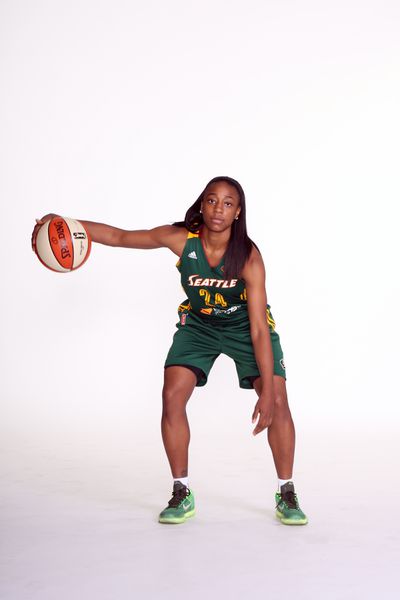
Photo by Joshua Huston/NBAE via Getty Images
You played in China, Turkey, South Korea and Spain. Can you describe how did you handle adapting to these places? Did you have somebody help and just show you the local customs?
Playing overseas, you get forced into people’s cultures, customs and cities really quickly. You don’t have that much time to dive in, and, at the same time, you’re with your team all the time, and they include you in team meetings and get you on walks around the city. But for me, it’s important to remember that I’m there to play basketball. So even though we’re in these great countries, we’re there for a particular purpose. It’s nice to travel around, but it’s even more nicer that the basketball doesn’t change.
I’m asking that question, because of the importance of your role right now in South Africa. In BAL4Her, 25 young women from Africa got the unique opportunity to learn from you. What did you try to teach them?
I tried to give them as much information as possible, because that’s the thing most people don’t have—it’s information and resources. I could share my story, but also learn from them, know what they need, what they want to see from their cities and their organizations. It’s a great opportunity to be a part of the clinics and see the girls just want to play basketball. Some of the kids don’t have the shoes to play basketball, but they’re coming to play anyway and that’s the beauty of it.
Was there any time for getting to know them individually? Since mentorship is a two-way street, were there any individuals that you personally found inspiring and/or motivating? Not only among the 25 women but maybe among other mentors?
There was one girl, she immediately ran to me and was kind of my assistant throughout the whole day. Her name was Fifi. She was fantastic, non-stop talking and not shy about anything. It’s funny because we had the same shirt on and the same hair, and we had a lot of similarities, and it was nice for her to see somebody who looks like her in a place that she wants to be in. I even interviewed her, got to hear her answers and I found out it’s her birthday coming up, so I wished her a happy birthday.
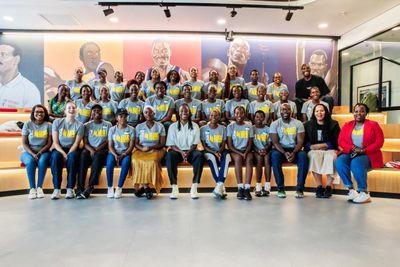
Basketball Africa League
From what you saw in South Africa and BAL, how big is the game of basketball on the continent and is there potential for more growth?
There’s a lot of potential and a chance for growth. The biggest thing this country is missing is development. They need more support, more resources, more people willing to come and teach the game of basketball. I was able to see here that it’s not hard to get people to play, they find ways to do it. But they need somebody to teach them the fundamentals and how to get to D3, D2, D1, NBA stuff. The biggest thing is just finding the right people and giving them encouragement.
And what about women’s basketball in particular? When do you think we will see a WBAL?
You can’t grow if you don’t have the right things around you. They can go and play as much as they can, but they don’t know the simple terminology and that’s going to be the difference when they get to the U.S. Right now, it’s important to make sure that they have everything to become the best versions of themselves. People want to play, there’s hunger for the game and the more people will hear about it, the more will come.
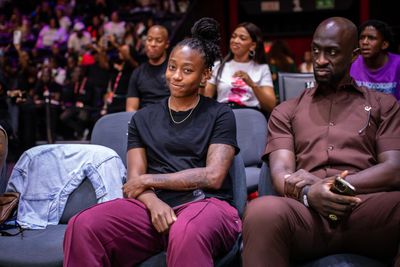
Basketball Africa League
Thanks to Mark Pozin for arranging the interview.
